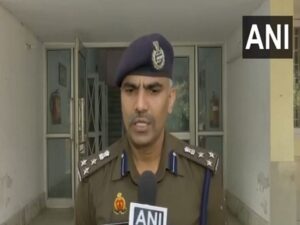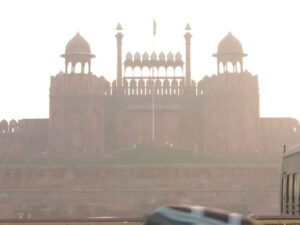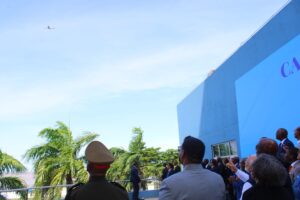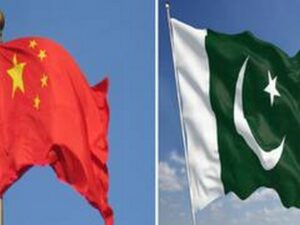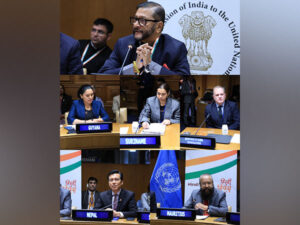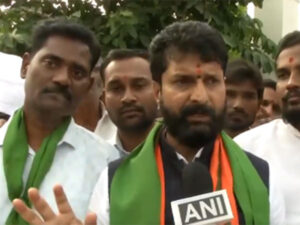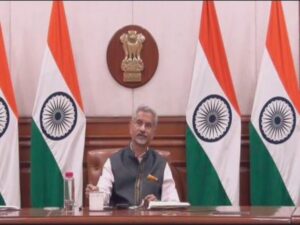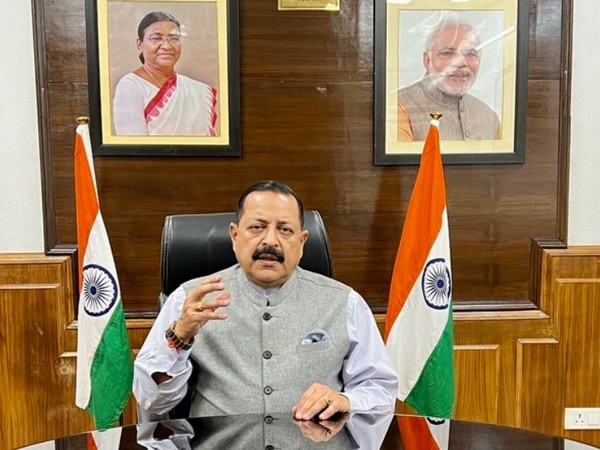
New Delhi [India], December 14 (ANI): Union Minister Jitendra Singh on Wednesday said that the Department of Biotechnology has funded fifty-one (51) Biotech-Kisan hubs out of which forty-four (44) are operational. These hubs are located in 15 agro-climatic zones of the country and are conducting activities in 169 districts.
In a written reply to a question in the Lok Sabha, Dr Jitendra Singh said, the Department of Biotechnology (DBT) is implementing a farmers-centric Mission Programme ‘Biotech-Krishi Innovation Science Application Network’ (Biotech-KISAN). The programme connects Indian farmers with the best scientists and institutions.
The Minister said the programme aims to work with small and marginal farmers for better agriculture productivity through scientific intervention and evolving best farming practices.
“The core activities of the programme are understanding the problems of the local farmer, scouting available technologies/solutions, demonstration and scale-up programmes, creation of strong Scientists-Farmers Interaction Platform; training programmes for the farmer and immersion programmes for scientists, communication through radio/TV and social media, thematic fellowship for selected farmers and special solution-driven thematic fellowships to women farmers,” read an official statement by the Ministry of Science and Technology.
The intended benefits of the programme are to increase farmer’s income by technological interventions and develop bio-based enterprises in rural areas. The programme has benefitted over four lakhs farmers (directly or indirectly) by increasing their agriculture output and income. The programme is also successful in developing 200 entrepreneurs in rural areas. The Department has to date provided support of Rs. 9554.146 lakhs to the programme, added the statement.
Moreover, the Ministries/Departments of the Government of India are implementing various programmes for direct linkage between science laboratories and farmers in the country, said officials.
“Department of Agricultural Research and Education (DARE)/Indian Council of Agricultural Research (ICAR) is supporting 731 Krishi Vigyan Kendras (KVKs) and implementing programmes like Mera Gaon Mera Gaurav (MGMG), Scheduled Castes Sub Plan (SCSP) programme and farmer FIRST,” added the statement.
The Council of Scientific and Industrial Research (CSIR) laboratories CIMAP (Central Institute of Medicinal & Aromatic Plants) and National Botanical Research Institute, Lucknow (NBRI) provides technical support and advice to farmers through training programmes and skill development programmes on various aspects of agriculture, science and technology. In addition to Biotech-Kisan, Department is also supporting farmers through its societal programme, Singh added. (ANI)
ISRO took initiatives for feasibility studies on missions to Venus: Union Minister Jitendra Singh
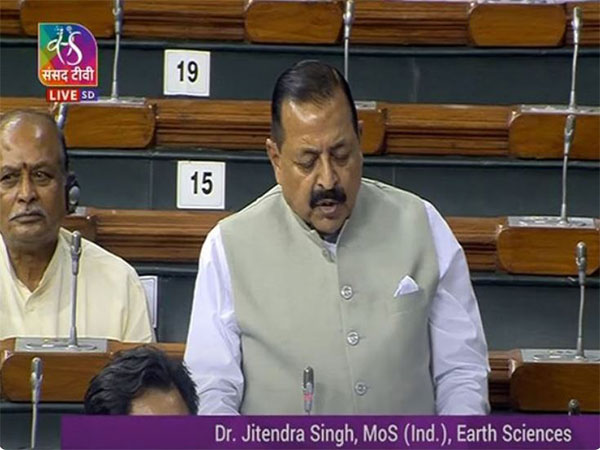
New Delhi [India], December 14 (ANI): Replying to a written question in the Lok Sabha Union Minister Jitendra Singh on Wednesday said that ISRO has taken initiatives for feasibility studies on missions to Venus.
“Union Minister of State (Independent Charge) Science & Technology; Minister of State (Independent Charge) Earth Sciences; MoS PMO, Personnel, Public Grievances, Pensions, Atomic Energy and Space, Dr Jitendra Singh today informed that ISRO has taken initiatives for feasibility studies on missions to Venus as well as Aeronomy studies,” read an official statement by the Union Department of Space.
The term “aeronomy,” coined and introduced about 60 years ago, refers to the scientific study of the upper atmospheric regions of the Earth and other solar system bodies. It covers the chemistry, dynamics and energy balance of both neutral and charged particles. “Both these missions are being conceptualized and the scientific scopes are being deliberated nationally with participation of science community,” said Singh.
Earlier on Tuesday, Union Agricultural minister Narendra Singh Tomar and Minister of State Dr Jitendra Singh formally released the data products and services of RISAT-1A satellite for the user community, as per an official press release.
According to an official press release, an MoU was signed between the Department of Agriculture and Farmers Welfare and the Department of Space to develop the Krishi-Decision Support System (Krishi-DSS) using geospatial technologies and related databases for enhancing evidence-based decision-making capability of all the stakeholders in the agriculture sector.
Addressing on the occasion, Union Minister Narendra Singh Tomar said, “A new dimension is being added in the field of agriculture. Revolution is being initiated in the agriculture sector through space science. He said that the agreement between the Department of Agriculture and the Department of Space will further enhance the strength of the agriculture sector. If this knowledge reaches the farmers, their production and productivity will increase. The quality of production will increase and export opportunities will also increase.”
Tomar said that the agriculture sector is very important in our country and in the whole world. Along with livelihood, this sector is working to speed up the country’s economy and provide employment to a large population. “Earlier the sector suffered due to a lack of knowledge and private investment. The amount of change, knowledge and investment needed in this area has not happened. This is the reason why the agriculture sector has not progressed as much as it should. In the year 2014, when Prime Minister Narendra Modi took over the work, he had a desire to take the country forward and work was done to connect it with new dimensions. Because of this, all the departments including the Department of Space changed their working methods, fixed targets and planned effective targets. Its effect is visible in the country today,” he said.
He further added that the agriculture department is also working on AgriStack. Work is being done to increase the income of the farmer and to save him from losses by forecasting. “Crop estimation, allotment to states, survey to declare an area dry, disaster assessment, – all these tasks will become easy after adopting technology. This technology is very beneficial for the agriculture sector as well as the country. After the completion of AgriStack, there will be a revolutionary change in the field of agriculture,” said Union Minister Narendra Singh Tomar.
Addressing the gathering, Minister of State, Dr Jitendra Singh said that RISAT-1A data would be extremely useful in developing decision support systems for Agriculture, Bioresources, Environment, Water Resources and Disaster Management.
He said efforts were made to make this coordination and cooperation possible. “The main achievement in the last eight years under the leadership of Prime Minister Modi was to use science for Ease of Living and it should be taken out from the laboratory. He further informed that in the year 2020, the rules of the Department of Space were amended,” said Jitendra Singh.
He said that the Prime Minister talks about the “whole of Government” approach, and today is a good example of this being achieved. The Ministry of Jal Shakti and the Ministry of Home Affairs have been connected through this technique and now the Ministry of Agriculture is also getting on board. “When the next generation of RISAT satellites will come, they will have more frequency as well as accuracy.
This cooperation should increase further,” he added. Secretary, of Agriculture and Farmers Welfare, Manoj Ahuja and Secretary, Department of Space, ISRO Chairman and Chairman, Space Commission, S. Somnath, Dr Himanshu Pathak, Secretary (DARE) and Director General (ICAR) and other senior officials were present at this occasion. The event was attended by representatives of various user Ministries/ Departments on online mode. The Ministry of Agriculture and Farmers Welfare is developing Krishi-DSS, a decision support system, on the lines of Gati Shakti, using RISAT-1A and VEDAS of the Department of Space. This will enhance the evidence-based decision-making capability of all the stakeholders in the agriculture sector by way of integration with MOSDAC and BHUVAN (Geo-platform) of ISRO and systems of ICAR. (ANI)






